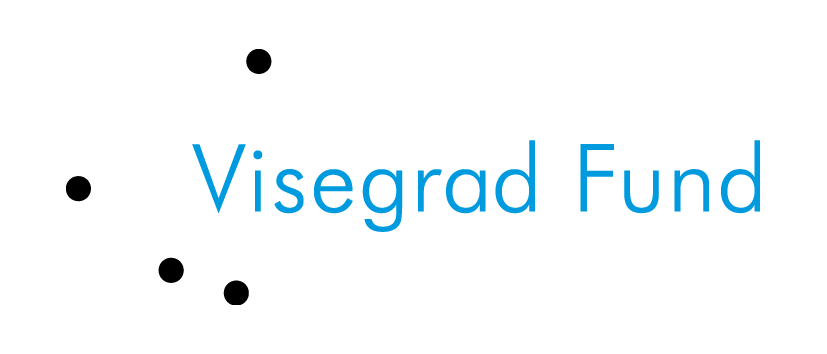Kierownik projektu: dr hab. Joanna Krasodomska, prof. UEK
Katedra Rachunkowości Finansowej
Konkurs OPUS 17, panel: HS4
Celem realizowanego projektu badawczego jest ustalenie jak interesariusze są angażowani we wdrożenie praktyk społecznych przez przedsiębiorstwa i dokonywanie związanych z nimi niefinansowych ujawnień. Społeczne praktyki przedsiębiorstw, do których odnosi się niniejszy projekt, należy rozumieć jako inicjatywy zgodne z ideą zrównoważonego rozwoju, które mogą istotnie i pozytywnie wpłynąć na społeczeństwo.
W ramach projektu poddajemy analizie trzy kluczowe zagadnienia dotyczące:
- zmian w zaangażowaniu interesariuszy (Czy różni interesariusze angażują się we wdrożenie praktyk społecznych przez przedsiębiorstwa? Jeżeli tak to jak i dlaczego? Jakie są kluczowe zagadnienia i wyzwania związane z angażowaniem interesariuszy oraz jakie narzędzia są stosowane w tym procesie? Jak zaangażowanie interesariuszy zmieniło się w czasie?);
- niefinansowych miar efektywności stosowanych w przedsiębiorstwach dla celów wewnętrznych oraz zewnętrznych (Czy interesariusze wpływają na niefinansowe kluczowe wskaźniki dokonań (Key Performance Indicators – KPIs) stosowane w przedsiębiorstwach? Jeżeli tak to jak i dlaczego?);
- znaczenia kanałów komunikacji dla angażowania interesariuszy (Czy nowe internetowe kanały komunikacji (Facebook, LinkedIn, Twitter) mogą wpływać na interakcje pomiędzy przedsiębiorstwami i interesariuszami i jak mogą one kształtować dialog z interesariuszami w zakresie praktyk społecznych?).
Badaniem obejmujemy duże jednostki zainteresowania publicznego (JZP) działające w Polsce, zobowiązane do ujawniania informacji niefinansowych na mocy znowelizowanej ustawy o rachunkowości oraz międzynarodowe korporacje. Źródłem danych są materiały archiwalne, analiza treści raportów spółek, stron internetowych i internetowych kanałów komunikacji, w tym social media oraz pół-strukturyzowane wywiady.
Z projektem badawczym wiążą się następujące zakładane efekty. Po pierwsze, przyczyni się on do lepszego zrozumienia zmian jakie zachodzą w sposobie zaangażowania interesariuszy we wdrożenie praktyk społecznych i związanego z nimi raportowania, Po drugie, wskaże on możliwy wpływ interesariuszy na opracowanie i stosowanie systemu pomiaru efektywności i wybór niefinansowych KPI. Po trzecie, dostarczy nowych dowodów na to, jak efektywnie komunikować informacje o społecznym zaangażowaniu przedsiębiorstw poprzez internetowe kanały komunikacji. Po czwarte, kontekst prowadzonych badań może być szczególnie przydatny dla dalszych badań dotyczących zaangażowania interesariuszy, a w szczególności może dostarczyć nowych informacji na temat aktywizmu interesariuszy w krajach Europy Środkowo-Wschodniej – regionie wciąż niedostatecznie zbadanym i przechodzącym społeczną transformację.

Dr hab. Joanna Krasodomska, prof. UEK, doktor habilitowana nauk ekonomicznych w dyscyplinie finanse, profesor uczelni, zatrudniona w Katedrze Rachunkowości Finansowej Uniwersytetu Ekonomicznego w Krakowie. Specjalizuje się w problematyce raportowania informacji z zakresu zrównoważonego rozwoju i ich atestacji oraz rachunkowości międzynarodowej. Reprezentka Polski w Radzie European Accounting Association (EAA), gdzie działa także w ramach EAA Stakeholder Reporting Committee. Jest członkinią Executive Committee w International Association for Accounting Education & Research (IAAER) i stypendystką ACCA IAAER Scholars Program. Członkini redakcji czasopism Accounting in Europe (Taylor & Francis) oraz Journal of Accounting and Management Information Systems (Bucharest University of Economic Studies). Zasiada w Radzie Nadzorczej spółki Comarch S.A., w której pełni również funkcję Przewodniczącej Komitetu Audytu.

Prof. dr hab. Dorota Dobija, profesor nauk ekonomicznych. Ekspert w dziedzinie rachunkowości i finansów. Dyplomowany księgowy. Trener biznesu. Coach. Stypendystka Fundacji Fulbrighta. Jest Kierownikiem Katedry Rachunkowości w Akademii Leona Koźmińskiego. Pracowała jako visiting professor w wielu uniwersytetach w USA i w Europie. Koordynator wielu krajowych i międzynarodowych projektów badawczych w zakresie ładu korporacyjnego oraz sprawozdawczości finansowej i niefinansowej. Laureatka licznych nagród i wyróżnień naukowych. Jest autorką wielu prac z zakresu rachunkowości, finansów, zarządzania kapitałem intelektualnym i ładu korporacyjnego. Od 2017 pełni funkcję wice-prezydenta European Academy of Management EURAM. Członek rad nadzorczych instytucji z sektora finansowego.

Dr hab. Ewelina Zarzycka, prof. UŁ, zatrudniona w Katedrze Rachunkowości na Wydziale Zarządzania Uniwersytetu Łódzkiego. Autorka licznych publikacji z zakresu raportowania niefinansowego, budżetowania, rachunków kosztów, a także wykorzystania systemów ERP w rachunkowości. Jest członkiem European Accounting Association, Academy of Management oraz ACCA. Jest praktykiem rachunkowości oraz wykładowcą na studiach podyplomowych organizowanych na Wydziale Zarządzania UŁ, prowadzi zajęcia na studiach MBA, szkolenia z zakresu rachunku kosztów i budżetowania dla pracowników oraz kadry zarządzającej przedsiębiorstw z różnych branży oraz kursy przygotowujące do egzaminów ACCA. Od 2019 jest kierownikiem Studiów Podyplomowych z akredytacją ACCA ,,Postgraduate Studies in Finance and Accounting”.
Abstract
A growing body of research is exploring corporate communication in relation to corporate social responsibility (CSR) activities on social media (SM). Nonetheless, while these studies have shown that SM communication may be an effective tool for reaching and engaging various stakeholders, how the design of corporate CSR communication engenders trustworthiness has yet to be examined. To address this gap, we suggest that SM communication may include important signals related to trust; thus, we investigate whether companies use sources of trustworthiness (reputation, performance, and appearance) while communicating with stakeholders and the response of the latter to such communication. Our empirical analysis is based on a database containing over 66,000 CSR-related messages from eight companies focusing on communication extracted from Twitter. These data are coded according to three sources of trustworthiness and two dimensions of CSR communication (social and environmental). Our findings indicate that all three attributes of trustworthiness are used by companies in their CSR social media communication. We also document how corporate efforts to use CSR communication that engenders trustworthiness influence stakeholder engagement. Our study therefore contributes to the literature on trust in relation to CSR by illustrating the importance of signaling that includes different sources of trustworthiness or their combination in corporate communication. By analyzing how the various trust attributes included in CSR communication affect SM reactions, we also identify which attributes lead to greater stakeholder engagement overall, particularly for the two analyzed dimensions of CSR communication.
Abstract
Purpose: The paper aims to explore the effect of stakeholder pressure on the disclosure of key performance indicators (KPIs) and the patterns of this disclosure in large public interest entities (PIEs). Design/methodology/approach: The study is based on the content analysis of the disclosures provided by 169 large (PIEs) operating in Poland in 2019. The data was hand-collected from the companies’ non-financial statements. The research hypotheses were empirically tested with the use of linear regression. Findings: The explanation for the disclosure of KPIs can be found in stakeholder theory, operationalized by stakeholder pressure linked to industry. In line with the expectations, business-related KPIs are disclosed by companies operating in industries with high pressure from investors, environment-related KPIs are presented by companies operating in environmentally sensitive industries and companies operating in industries with high pressure from employees disclose society-related KPIs. According to the results of the study, reporting on employee-related KPIs is accompanied by environmental and social KPI disclosures. Originality/value: The study contributes to the literature on corporate non-financial disclosures as it provides new insights into non-financial KPI disclosures in a new and relatively unexplored institutional setting established by the Directive 2014/95/EU. While researchers recognize the stakeholders’ environmental and social concerns, there is nevertheless a lack of understanding of their implications for KPIs in measuring social practice. The research fills that gap by addressing the specific impact of different stakeholder groups on the disclosure of KPIs.
Abstract
Purpose: The goal of the article is to systematize the literature related to the role of stakeholder engagement in corporate social practices and related disclosures by identifying the main theoretical lenses, research methods, and topics undertaken by authors of articles under scrutiny. Design/Methodology/Approach: The article systematically reviews and discusses existing studies in the area of management, social and environmental accounting, intellectual capital, ethics, and accounting. We identify and subsequently analyze 68 articles published over the years 2010–2020.
Findings: According to the study findings, stakeholder theory is most often used as a theoretical background. The survey is the most popular research method, while stakeholder engagement in social practices is the most common research problem investigated by the articles’ authors. Corporate stakeholders’ communication on social media is a new topic that emerged in the literature in the studied period. Research Limitations/Implications: Our analysis is restricted to articles published in journals included in the ABDC Journal Quality List that are ranked B, A, and A* in a 10-years period. Practical Implications: The article’s findings may be useful for researchers and practitioners who deal with corporate social practices, disclosures, and stakeholders’ roles in these processes. Originality/Value: The paper offers an up-to-date literature review, identifies the main themes, research gaps, and provides relevant guidance for future research.
Abstrakt
Cel: Celem przedstawionych w artykule badań jest identyfikacja czynników, które wpływa-ją na zaangażowanie dużych jednostek zainteresowania publicznego działających w Polsce w prowadzenie dialogu z interesariuszami i tym samym sprzyjają rozwojowi rachunkowo-ści opartej na dialogu. Metodyka/podejście badawcze: Przegląd literatury pozwolił na wskazanie potencjalnych czynników zwiększających szanse na rozwój rachunkowości opartej na dialogu. W celu weryfikacji postawionych hipotez wykorzystano próbę 159 dużych jednostek zainteresowania publicznego. Dane do analiz zaczerpnięto ze sprawozdań (oświadczeń) na temat informacji niefinansowych opublikowanych za 2020 rok, informacji zamieszczonych na stronach internetowych oraz firmowych kontach w serwisach społecznościowych. W celu weryfikacji postawionych hipotez wykorzystano metodę regresji logistycznej. Wyniki: Zgodnie z wynikami badań stosowany standard raportowania niefinansowego oraz zorientowanie spółki na pracowników wpływają pozytywnie na proces dialogu z interesa-riuszami podejmowany przez badane jednostki, zwiększając szanse na rozwój rachunkowo-ści opartej na dialogu. Ograniczenia: Próba badawcza jest ograniczona do jednego kraju, a dane dotyczą ujawnień dokonywanych w jednym roku. Oryginalność/wartość: Artykuł poszerza wiedzę z zakresu rachunkowości, w szczególno-ści dotyczącej czynników na wpływających na skłonność jednostek zainteresowania publicz-nego do prowadzenia dialogu z interesariuszami.
Abstract
Purpose: The paper aims to examine if corporate characteristics, general contextual factors and the internal context differentiate the quality and quantity of the disclosed non-financial Key Performance Indicators (KPIs). Design/methodology/approach: The study is based on content analysis of the disclosures provided by large public interest entities operating in Poland after the introduction of the Directive 2014/95/EU. The quality of the KPIs disclosures is measured with the disclosure index. Regression analysis and selected statistical tests are used to examine the influence of the selected factors on the differences in the index value and corporate disclosure choices as regards the KPIs. Findings: The study findings indicate that the sample companies provide a variety of non-financial KPIs in a manner that makes their effective comparison difficult. The research confirms that mainly industry, ecologists and the reporting standard determine the significant differences in the quality of the KPIs disclosures and the quantity of presented KPIs. Research limitations/implications: The paper adds to the understanding of the differences in the quality of KPIs presentation and the choice of disclosed KPIs. Practical implications:The paper includes suggestions on how to change corporate practice with regard to the non-financial KPIs disclosures. Originality/value: We shed additional light on the importance of internal contextual factors such as the reporting standard and the reporters’ experience in providing non-financial KPIs disclosures.
Abstract
Purpose: This study examines the internationalization effects of corporate social responsibility (CSR) reporting, specifically aiming to identify and compare the CSR reporting practices of large US multi-national corporations (MNCs) and their Polish subsidiaries. Design/methodology/approach: Based on content analysis and using a disclosure index, the authors examined the CSR information posted on, or linked to, the corporate websites of a sample of 60 US-based MNCs and their subsidiaries operating in Poland. Findings: The findings indicate that US companies, despite operating in a less regulated environment, had more extensive disclosure than their Polish subsidiaries and covered more CSR-related topics. CSR disclosures within the US subsample were analogous in volume and detail. By contrast, only about half of Polish companies provided CSR disclosures, which were more diverse in volume and in the types of activities disclosed. The authors did not find a significant positive correlation between the CSR disclosures of the two subsamples. Originality/value: The study contributes to the literature on internationalization processes and sustainability practices. It provides insights into the CSR reporting of companies located in Central and Eastern European countries. The findings also have implications for policymakers in incentivizing the enhancement of the reporting disclosure practices of companies.
Abstract
Environmental protection is of vital importance and needs to be considered in the context of business strategies, including companies’ reporting decisions. This paper aims to investigate the importance of stakeholders for environmental key performance indicators (KPIs) and the significance of different types of environmental KPIs to various stakeholders. The study is based on a content analysis of the disclosures provided by large public interest companies operating in Poland. The data were processed to produce descriptive statistics as well as classification and regression trees (C&RTs). According to the study results, the sample companies provide a variety of environmental indicators, with a total of 735 KPIs identified. The research confirms the importance of stakeholders interested in environmental issues for corporate decisions regarding environmental KPI disclosure. The study contributes to the extant literature by providing new insights into the importance of different stakeholder groups for the disclosure of environmental KPIs. It may serve as an incentive for standard setters and practitioners to take a proactive approach in further developing and improving environment-related reporting regulations.
Abstract
Climate change is a key issue faced by the contemporary world. Through the lens of neoinstitutionalism and the normativity concept, this study examines whether cultural, regulative, and normative dimensions affect the quality of climate change risk disclosures. This paper uses a sample of 653 European companies and measures the quality of their disclosures based on Carbon Disclosure Project (CDP) ratings. The results show that the quality of such disclosures is associated with cultural and normative dimensions, but substantive legitimacy is found to be influenced by all the examined institutional factors. The interactions between the examined cultural and normative dimensions are shown to be (not) important for firms that operated in weaker (stronger) regulative contexts prior to Directive 2014/95/EU. This study provides a better understanding of the challenges related to climate change reporting and the role of institutional differences in the process of achieving normativity in cross-national contexts such as that of the European Union.
Abstract
This study explores firm responses to stakeholder-initiated involuntary disclosures, which are disclosures made by stakeholders about an organization but are against the will of managers, and subsequent stakeholder reactions. We analyzed 134,977 firm Twitter replies from seven companies to identify their responses to involuntary corporate social responsibility (CSR) disclosures and find that companies demonstrate different attitudes toward engagement in the exchange about involuntary disclosures. Whereas some companies communicate with stakeholders, others are almost silent. When a company engages in communication with its stakeholders, the communication is mostly one-way, and mortification or dissent is the likely response strategy. We also find that while stakeholders generally do not continue to engage with corporate communications, they are likely to respond when companies deny the information revealed by involuntary disclosure. Our results suggest that involuntary disclosures on social media are not able to improve communication between stakeholders and companies.
Abstract
Purpose: Stakeholder capitalism (SC) advocates that organisations should focus on creating long-term value for all key stakeholders rather than maximising short-term profits for shareholders. This paper aims to explore whether and how business organisations have applied stakeholder capitalism principles (SCPs) during the COVID-19 pandemic and how these efforts were communicated in integrated reports. Design/methodology/approach: This study is based on the content analysis of the text extracted from the integrated reports of 22 companies categorised as excellent in the 2020 EY Excellence in Integrated Reporting Award 2020. The research material consisted of paragraphs that reflected how the company observed the SCPs in practice. Findings: The stakeholder responsibility principle was the most represented by the examined companies, followed by the principles of continuous creation, stakeholder engagement and stakeholder cooperation. The COVID-19 pandemic has propelled the necessity of implementing innovative solutions to counteract the virus’s spread. It has also spurred the need for two-way digitalised communication between the executives and stakeholders. The new situation also required collaborative approaches in the forms of partnerships, joint initiatives and programmes to ensure employee safety and help communities recover from the social and economic impacts of the pandemic. Originality/value: This study links SC with integrated reporting (IR) and contributes to the literature by providing new insights into how SCPs have been applied during the COVID-19 pandemic. This discussion suggests that whereas these principles determine how the companies must act to satisfy stakeholders expectations, integrating reporting may help develop a report that is stakeholder-oriented and which responds to their information needs.
Abstract
Cel: Celem przedstawionych w artykule badań jest identyfikacja czynników, które wpływają na decyzje o raportowaniu przez spółki informacji o działaniach podjętych na rzecz osiągnięcia celów zrównoważonego rozwoju (Sustainable Development Goals – SDGs). Metodyka/podejście badawcze: Przegląd literatury pozwolił na wskazanie potencjalnych trzech czynników wpływających na decyzje przedsiębiorstw o raportowaniu SDGs. W badaniu wykorzystano próbę 8499 firm. Dane pozyskano z bazy Refinitiv ESG Global. W celu weryfikacji postawionych hipotez wykorzystano metodę regresji wielorakiej. Wyniki: Zgodnie z wynikami badań, zaangażowanie w kwestie społeczne i środowisko-we, stosowanie w sprawozdawczości standardów GRI (Global Reporting Initiative) oraz presja wybranych grup interesariuszy sprzyjają uwzględnianiu przez spółki, w sprawozdawczości, informacji na temat SDGs. Ograniczenia: Uproszczony sposób pomiaru zmiennej zależnej może nie oddawać w pełni różnic w objętości i jakości ujawnień dotyczących SDGs. Oryginalność/wartość: Artykuł dostarcza nowej wiedzy na temat czynników determinujących raportowanie SDGs, w tym znaczenia interesariuszy w tym procesie. Konieczna jest dalsza edukacja przedsiębiorstw oraz inwestorów w zakresie zrównoważonego rozwoju oraz promowanie stosowania standardów GRI.
Abstract
Purpose: Stakeholder capitalism is a system in which organisations seek long-term value creation by considering all stakeholdersʼ needs. The paper aims to identify how stakeholder capitalism has become embedded in sustainability reporting over time and explore how it currently affects the standardisation of the ESG disclosure framework. Methodology/approach: The study reviews the essential works and research studies published over the last six decades that reflect the emergence or the revival of the stakeholder capitalism concept. The paper also analyses the complex environment of accounting standard-setters and regulators who promote various non-financial report-ing frameworks or standards. Findings: The system of stakeholder capitalism may propel the harmonisation of sustainability reporting and serve common interests. It refers to more than just business organisations, which should focus on long-term value creation and consider their environmental impacts on the planet. It is a broader concept of engaging governments in a joint effort to create prosperity for their people, attracting society to enter the dialogue and ensuring planetary wellbeing. Originality/value: The work gives an insight into the waves of changes in the sustain-ability reporting standardisation scene that have gained momentum over the last two years. It addresses the critical views of experts and debates on how harmonising inter-national standards can make sustainability reporting and stakeholder capitalism genuinely serve the interest of stakeholders and the planet.









